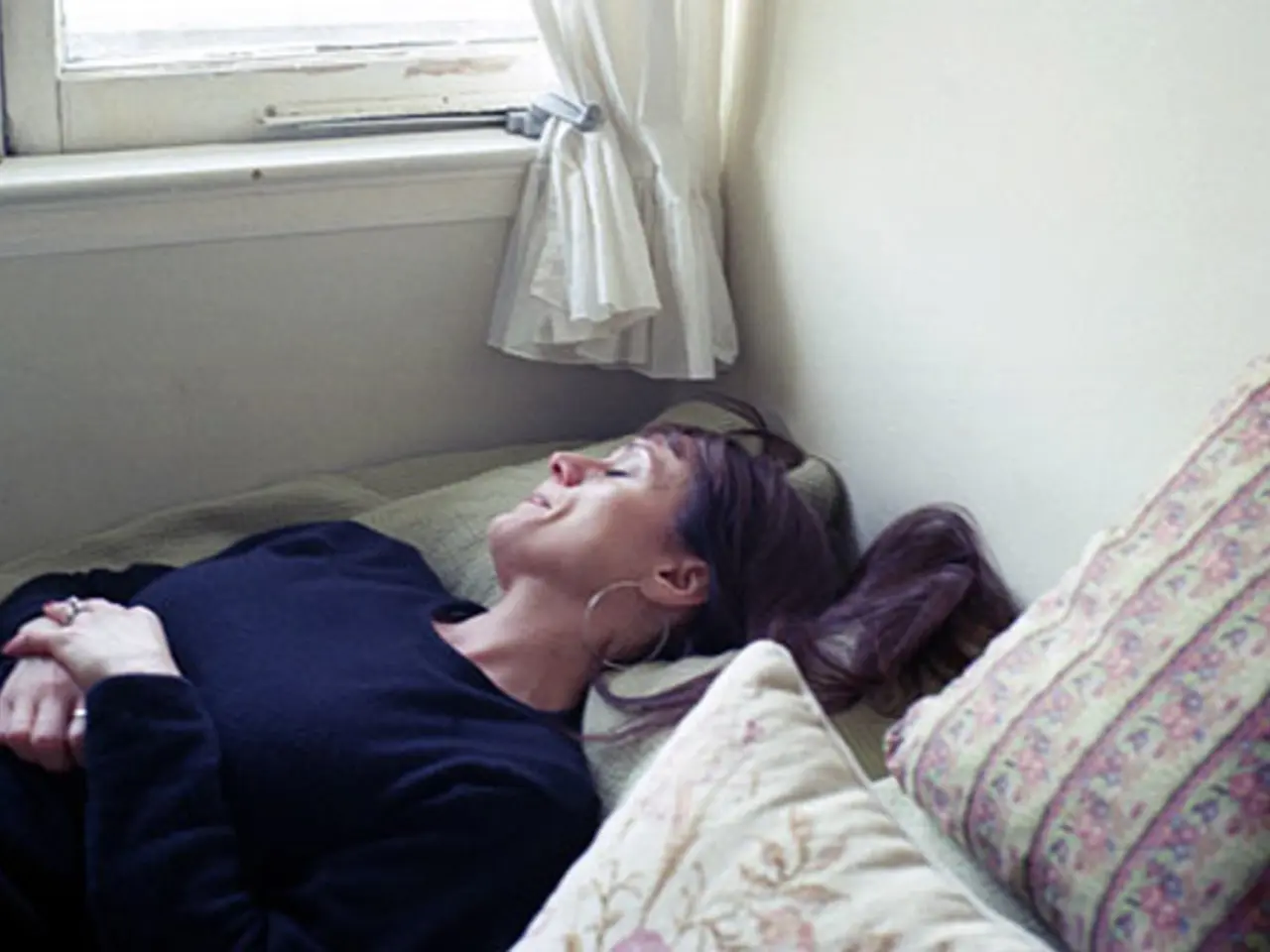Healthy Slumber Rituals: A Comprehensive Guide Containing 26 Strategies for Overcoming Sleeplessness
In the battle against chronic insomnia, basic sleep hygiene practices such as maintaining a consistent sleep schedule, avoiding caffeine before bed, and creating a relaxing sleep environment are essential. However, for those struggling with persistent sleep issues, additional therapies can provide significant relief.
Cognitive Behavioral Therapy for Insomnia (CBT-I) is considered the gold standard first-line treatment for chronic insomnia. This comprehensive approach has shown improvement in symptoms for about 80% of patients, with many reducing or stopping medications altogether. CBT-I encompasses several main techniques, including sleep restriction therapy, stimulus control, cognitive restructuring, relaxation training, and sleep hygiene education.
Sleep restriction therapy involves limiting time in bed to increase sleep drive, while stimulus control focuses on associating the bed with sleep and getting out of bed if unable to sleep. Cognitive restructuring aims to change negative thoughts about sleep that increase anxiety, and relaxation training includes techniques such as progressive muscle relaxation, deep breathing, and mindfulness meditation. Sleep hygiene education reinforces good habits like avoiding evening caffeine, managing light exposure, and creating a relaxing bedtime routine.
Psychological and behavioral therapies, beyond CBT-I, may include relaxation therapy and biofeedback. Paradoxical intention, which reduces the anxiety of trying to fall asleep by instructing patients to stay awake, is also an effective intervention. These interventions are effective for adults of all ages and chronic hypnotic users and are recommended as first-line or adjunct treatments.
Mental healthcare is crucial, especially when insomnia co-occurs with anxiety, depression, or other psychological issues. Counseling and therapy can improve both sleep quality and overall mental health.
Alternative or complementary therapies may offer additional benefits. Aromatherapy with essential oils, such as lavender, has calming effects that can improve sleep quality, particularly when combined with relaxation techniques. Homeopathic remedies like valerian root and chamomile have been used, though evidence is mixed and more rigorous studies are needed.
Pharmacological treatments like prescription sleep aids exist but are generally reserved for severe cases and carry risks such as dependence. Hence, non-pharmacological therapies such as CBT-I are preferred as first-line treatments.
In summary, an integrated approach, incorporating structured CBT-I, other psychological-behavioral therapies, relaxation training, mental health support, and some adjunctive natural remedies like aromatherapy, can be highly effective in managing chronic insomnia. If stress and anxiety do not improve or interfere with other aspects of life, it is best to consider talking with a therapist.
- Cognitive Behavioral Therapy for Insomnia (CBT-I), which is the gold standard first-line treatment for chronic insomnia, includes techniques like sleep restriction therapy, stimulus control, cognitive restructuring, relaxation training, and sleep hygiene education to improve symptoms and reduce or stop medication use for about 80% of patients.
- Beyond CBT-I, other psychological and behavioral therapies, such as relaxation therapy, biofeedback, and paradoxical intention, may provide significant relief for chronic insomnia sufferers and are recommended as first-line or adjunct treatments.
- Mental health is crucial for managing chronic insomnia, as co-occurring anxiety, depression, or other psychological issues can interfere with sleep quality and overall health-and-wellness. Counseling and therapy can help improve both sleep and mental health.




